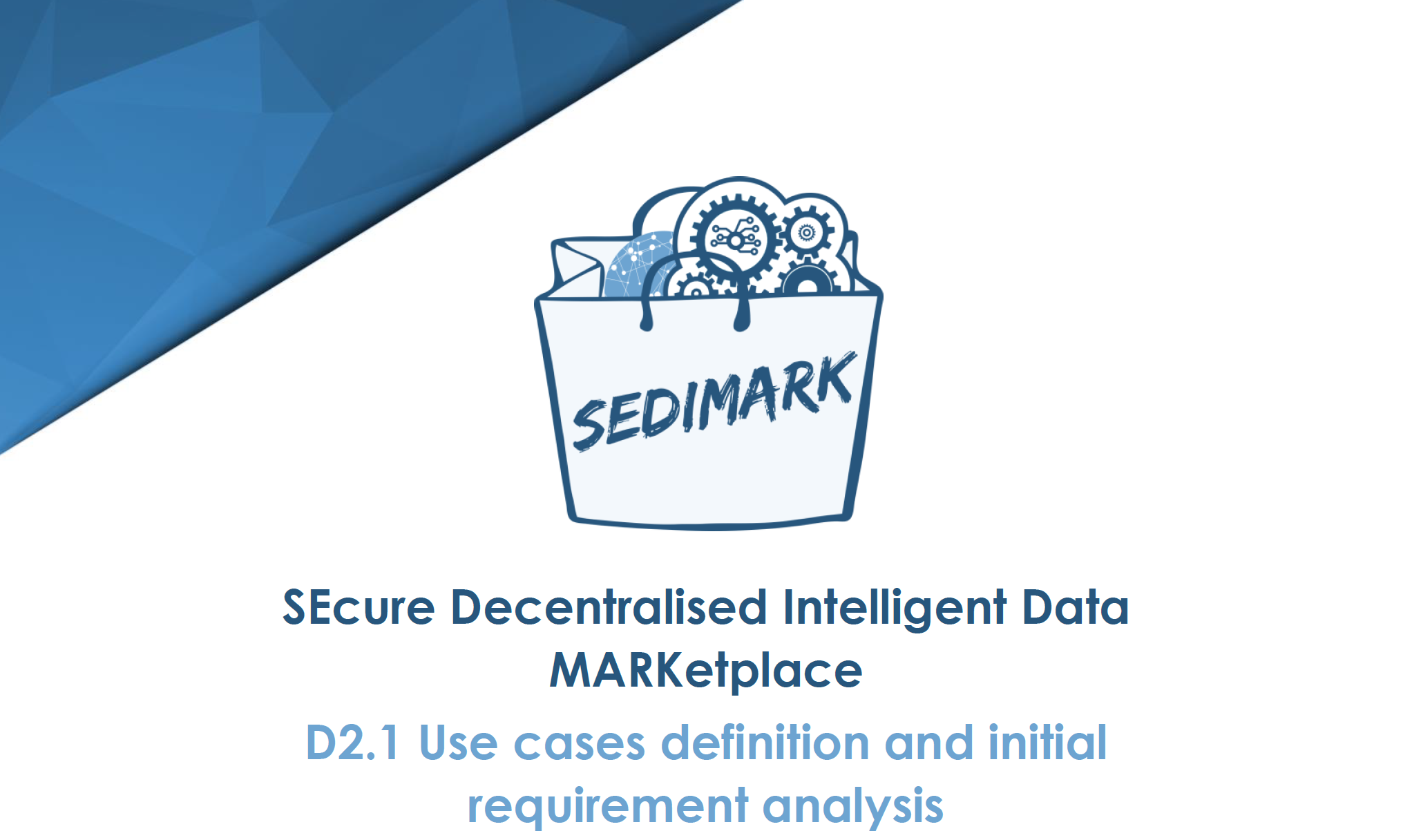
This document provides the initial detailed description of the project use cases (UCs) and the initial requirements. As far as it concerns the use cases, the goal is to define them with specific details about their implementation and how they will use the project tools, and especially aiming to combine data from different data sources and platforms to show the potential for secure combination and sharing of data across sites. With respect to the requirements, the aim is to gather requirements from various stakeholders, industrial applications, the UCs and the concept of EU Data Spaces, and analyse them, in order to extract functional and non-functional requirements for making the data marketplace decentralised, trustworthy, interoperable and open to new data (open data), with intelligent AI-based and energy efficient data management tools capable of providing high quality data and services to consumers.
All the public deliverables and documents produced by SEDIMARK can be found in the Publications & Resources section.